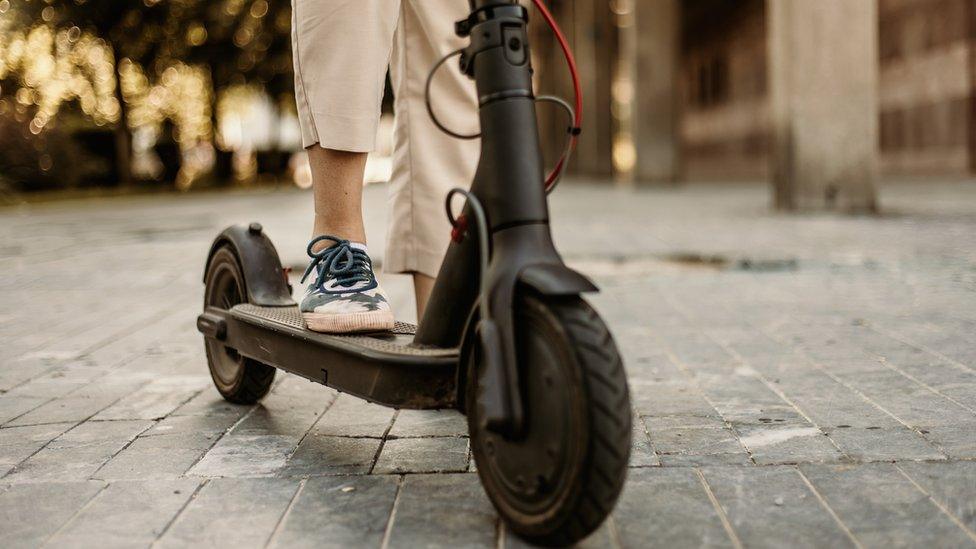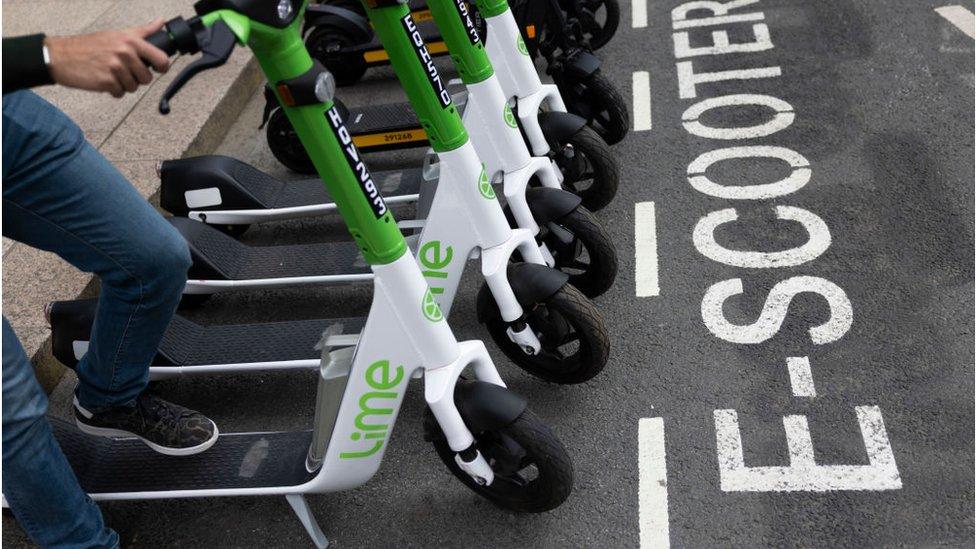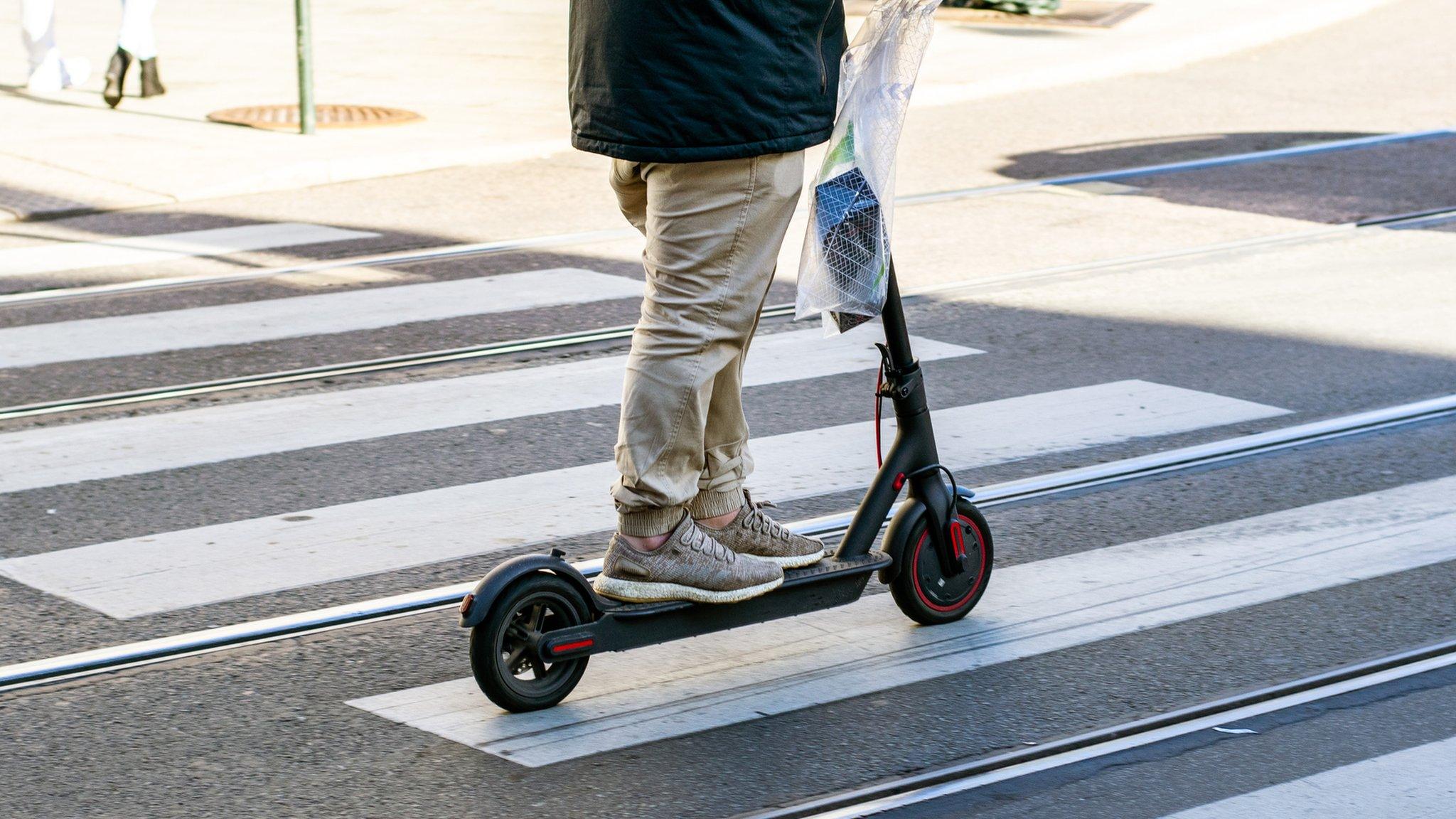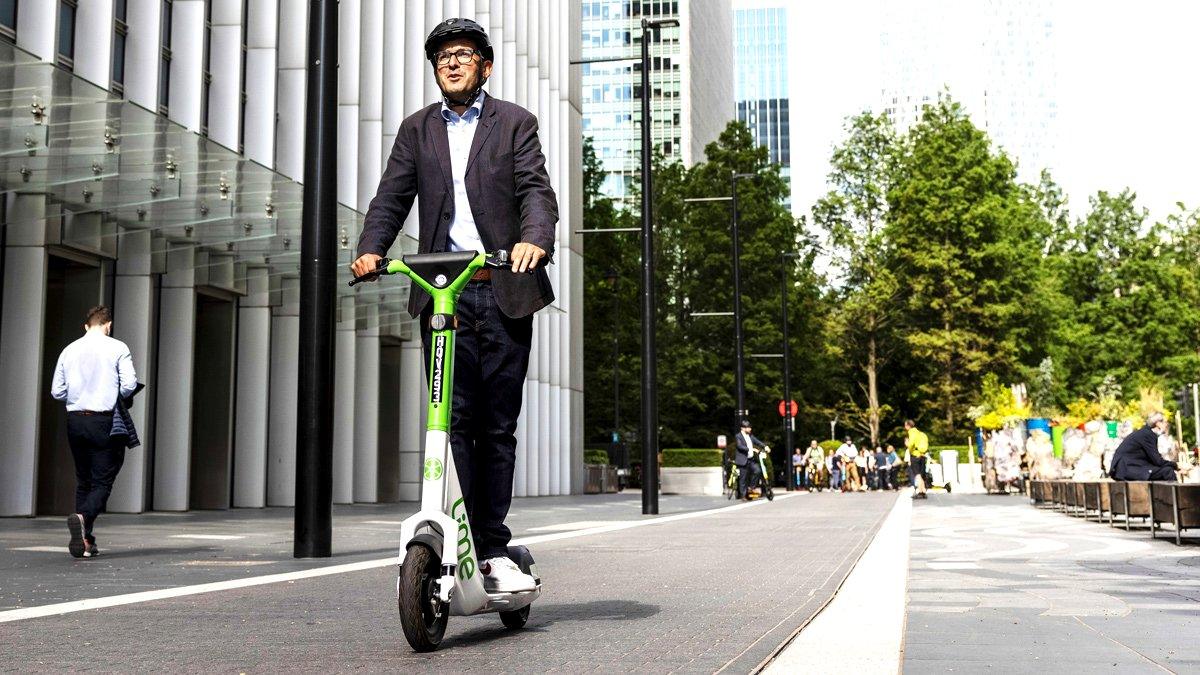South Western Railway set to ban e-scooters
- Published

Several organisations have already banned e-scooters
A rail operator is the latest to ban e-scooters from its trains and stations.
South Western Railway (SWR) will introduce the ban on 1 June, after saying e-scooters pose "a fire risk due to the potential of their lithium-ion batteries overheating".
The ban will also apply to e-unicycles, e-skateboards and hoverboards.
SWR said while the chances of a fire were small, reports of incidents involving e-scooters catching fire were increasing.
E-scooters have already been banned by other organisations across the country including rail operator Great Western Railway (GWR), Transport for London (TfL) and Nexus, which operates Tyne and Wear Metro and the Shields Ferry.
Jane Lupson, SWR's head of safety, said the potential risk e-scooters posed was "not acceptable".
She said the company understood that the devices were "popular" but the safety of customers and staff was the firm's "number one priority".
"So until greater regulation and testing can be brought in to ensure the safety of those travelling on trains, e-scooters will remain banned," Ms Lupson added.
The ban will not apply to electric wheelchairs, mobility scooters and e-bikes.
Private e-scooters can only be used on private land and not on public roads, cycle lanes or pavements.
The only e-scooters that can be used on public roads are those that are rented as part of government-backed trials.

Follow BBC South on Facebook, external, Twitter, external, or Instagram, external. Send your story ideas to south.newsonline@bbc.co.uk, external.
- Published16 May 2023

- Published10 May 2022

- Published27 April 2022

- Published22 March 2022
